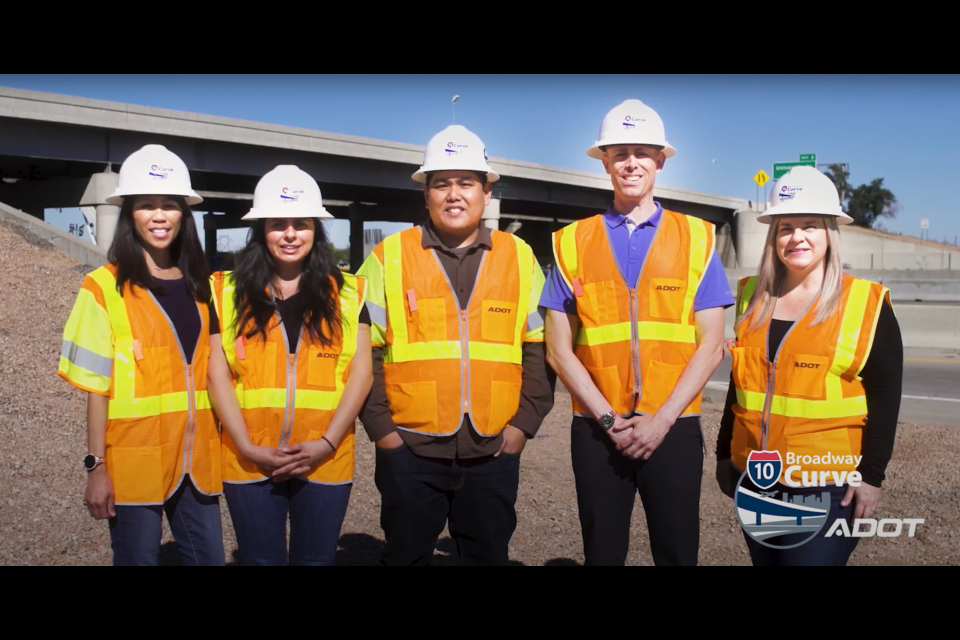As the project manager for the Interstate 10 Broadway Curve Improvement Project, I’ve come to expect the unexpected. It’s all part of leading the Arizona Department of Transportation’s largest-ever urban highway reconstruction project: a four-year, $776 million effort along the busiest 11 miles of highway in the state.
Yet one aspect of this project has taken me by surprise: the number of people who risk their lives, and the lives of others every day, to save about three minutes. That’s how much time you save if you drive the 11 miles of I-10 between the Loop 202 (Santan/South Mountain Freeway) and I-17 at 75 mph vs. the posted speed limit of 55. Three. Whole. Minutes.
Speeding saves a small amount of time, yet takes many lives. In 2020, 337 people were killed in speed-related crashes in Arizona and another 15,839 were injured. Speeding is one of the major causes of work-zone crashes. In 80 percent of fatal crashes that occur in work zones, the driver and his or her passengers are killed.
Construction crews are also at risk, even when they’re working behind barriers. Their hard work makes our highways safer and more efficient. Just like you, they want to make it home safely to their families, friends and pets every day.
Our project team decided not to sit back and accept that people speed through our work zone. Instead, we’re taking actions like adding more DPS patrols and using overhead message signs and billboards to share safety information. Also, I recently joined my project team colleagues Kole, Marcy, Edika and Jeremy to participate in a public service announcement (PSA) asking drivers to slow down. We’re not actors; we’re just people who work on highway projects, and who truly care about your safety and that of our crews in the field. I hope you’ll watch our PSA and share it with others. You can view the PSA here: https://vimeo.com/685493235.
We also care about the time, expense and inconvenience involved with putting the roadway back together after someone collides with a barrier, guardrail or attenuator. That’s been happening about twice a week since our work zone was established and - you guessed it - the No. 1 contributor is speed.
Thankfully, most people aren’t seriously injured in these types of crashes, unless you count the headache of having to fix or replace their vehicles and paying higher insurance rates. For us, repairing and replacing the damaged equipment requires closing I-10 travel lanes or ramps and putting detours in place - detours that often add more distance and time to a driver’s commute. How ironic.
While our team is hyperfocused on our work zone along I-10 in Phoenix, Tempe, Guadalupe and Chandler, we hope you’ll remember that speeding through any work zone can be deadly and costly, and slows everyone down in the long run. Are the few minutes you might save by speeding really worth it? Please, slow down.
Visit the project's Work Zone Safety campaign website here: https://i10broadwaycurve.com/work-zone-safety/.
Amy Ritz is a Gilbert resident and 16-year ADOT employee. She is the project manager for I-10 Broadway Curve Improvement Project and previously served as deputy project manager of the Loop 202 South Mountain Freeway Project.



